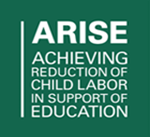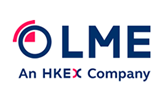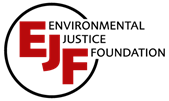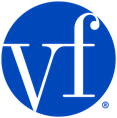...
.
Name of Resource | Achieving Reduction of Child Labor in Support of Education (ARISE) |
Type | Platform for co-operation |
Country / jurisdiction | Global |
Organization | International Labour Organization, Japan Tobacco International, Winrock International |
Initiative launch date | 2011 |
Description | Achieving Reduction of Child Labor in Support of Education (ARISE) is a programme to help prevent and eliminate child labour in tobacco-growing communities where Japan Tobacco International does business. The partnership began in 2011, with much of that year devoted to building the partner relationships and developing the programme framework. The on-the-ground efforts began in Malawi and Brazil in early 2012 and in late 2012, in Zambia. |
Availability |
...
Name of Resource | Responsible Minerals Assurance Process |
Type | Practical implementation tool |
Country / jurisdiction | Global |
Organization | Responsible Minerals Initiative |
Date of initial launch | June 2014 |
Description | The Responsible Minerals Assurance Process (RMAP), formerly the Conflict-Free Smelter Program, is helping companies make informed choices about responsibly sourced minerals in their supply chains. Focusing on a “pinch point” in the global metals supply chain, the RMAP uses an independent third-party audit of smelter/refiner management systems and sourcing practices to validate conformance with RMAP protocols and current global standards. The audit employs a risk-based approach to validate smelters' company level management processes for responsible mineral procurement. Companies can then use this information to inform their sourcing choices. A list of smelters and refiners that meet the requirements of the audit standards are published on this website. The audit standards are developed according to global standards, including the OECD Due Diligence Guidance for Responsible Supply Chains of Minerals from Conflict-Affected and High-Risk Areas and the U.S. Dodd-Frank Wall Street Reform and Consumer Protection Act. |
Availability | ENG: http://www.responsiblemineralsinitiative.org/responsible-minerals-assurance-process/ |
Name of Resource | Responsible Sourcing: London Metal Exchange Position Paper |
Type | Position paper |
Country / jurisdiction | Global |
Organization | London Metal Exchange |
Date of publishing | October 2018 |
Description | The London Metal Exchange is proposing that all of its brands undertake an assessment against the red flag indicators set out by the Organisation for Economic Co-operation and Development. Any brands where this assessment indicates a higher risk in respect of metal sourcing practices would be expected to undertake an audit against an industry standard which has been shown to incorporate the OECD Due Diligence Guidance for Responsible Supply Chains of Minerals from Conflict-Affected and High-Risk Areas, or an equivalent. Furthermore, and given the greater industry focus on two specific metals (cobalt and tin), the LME will expect all brands of these metals to undertake such an audit. It is not the intention of the LME to publish its own standard; rather, it will allow those producers requiring an audit to elect an existing standard which has been independently assessed as being consistent with the OECD Guidance. |
Availability |
Name of Resource | Sedex Members Ethical Trade Audit (SMETA) Best Practice Guidance |
Type | Guidance on policy / legislation implementation |
Country / jurisdiction | United Kingdom |
Organization | SEDEX |
Date of publishing | April 2017 |
Description | The SMETA best practice guidance is a compilation of social audit best practices to help auditors achieve the consistency needed for social audits to be widely accepted by retailers and brands. It also helps organizations commissioning audits to specify the auditing methodology required. It provides guidance on conducting ethical trade (labour and human rights) audits including risk assessment, conducting audits, types of audits, corrective action plan format, worker interviews and engagement etc. |
Availability | ENG: https://cdn.sedexglobal.com/wp-content/uploads/2017/04/Smeta-6.0-BPG.pdf |
Name of Resource | Supply Chain Sustainability Procurement Guidance – How to embed best practice in your procurement when combating modern slavery |
Type | Report / analysis; Guidance on policy / legislation implementation |
Country / jurisdiction | Global |
Organization | Supply Chain Sustainability School |
Date of publishing | July 2016 |
Description | The aim of the Guide is to help organizations identify their risks, embed the modern slavery requirements within the prequalification and contracting process and finally support the auditing and supply chain management processes. It has been written for procurement professionals, sustainability advisors and individuals who make procurement decisions as well as those who support them. It provides guidance on how to address the issues relating to modern slavery through everyday procurement activities and has been specifically written for sectors covered by the Supply Chain Sustainability School. The Guide compliments or builds on existing guidance that has been published to date. |
Availability |
Name of Resource | The Environmental Justice Foundation’s Charter for Transparency |
Type | Charter, Report |
Country / jurisdiction | Global |
Organization | Environmental Justice Foundation |
Date of publishing | November 2018 |
Description | Transparency in the fishing industry is the best weapon against the twin tragedies of illegal fishing and human rights abuse in the sector. EJF has collated ten simple principles for states to follow. |
Availability | ENG: https://ejfoundation.org/reports/the-ten-principles-for-global-transparency |
Name of Resource | The Responsible and Ethical Private Sector Coalition against Trafficking (RESPECT) |
Type | Platform for co-operation, Knowledge/information hub |
Country / jurisdiction | Global |
Organization | Babson, the Global Initiative Against Organized Crime, International Organization for Migration |
Date of initial launch | 12 January 2018 |
Description | The initiative assembles key leaders, practitioners, and policy makers to identify solutions for public and private sector challenges surrounding modern slavery. RESPECT endeavours to add value by facilitating debate between diverse stakeholders, providing relevant contributions to the research basis, building linkages to other crimes, and developing effective public policy towards a more effective global response. |
Availability |
Name of Resource | The Sancroft-Tussell Report: Eliminating Modern Slavery in Public Procurement |
Type | Report |
Country / jurisdiction | United Kingdom, Global |
Organization | Sancroft |
Date of publishing | 2017 |
Description | This report explores how central government’s top contractors are facing the challenge of identifying and addressing modern slavery. It analyses the modern slavery reporting performance of the top 100 suppliers to central government, ranked by the value of contracts won by them in 2017. It goes on to set out the business case for companies to do more to eliminate modern slavery in their operations and supply chains, providing guidance to business on where, how, and why they should be taking effective action to manage modern slavery risk. It also touches upon the role of central government in incentivizing better performance by businesses. Analysis of performance was guided by the legal compliance of each modern slavery statement, and the degree to which the statement responded to the six suggested reporting areas as outlined in the Modern Slavery Act (MSA) itself. An overarching trend was the wide variance in both legal compliance and quality of published statements. |
Availability |
Name of Resource | VF Traceability initiative |
Type | Traceability/practical tool |
Country / jurisdiction | Global |
Organization | VF Corporation |
Date of initial launch | 2018 |
Description | VF’s supply chain spans approximately 50 countries and thousands of contract suppliers. The company sets out to ensure that its products are made with responsibly sourced materials by tracing where they originated. VF’s traceability initiatives intend to provide visibility into some of their most pressing supply chain issues and risks. VF partners with its suppliers to bring best practices to their businesses and help prevent any occurrence of human rights violations. |
Availability | ENG: https://sustainability.vfc.com/our-impacts-efforts/responsible-sourcing/traceability |








